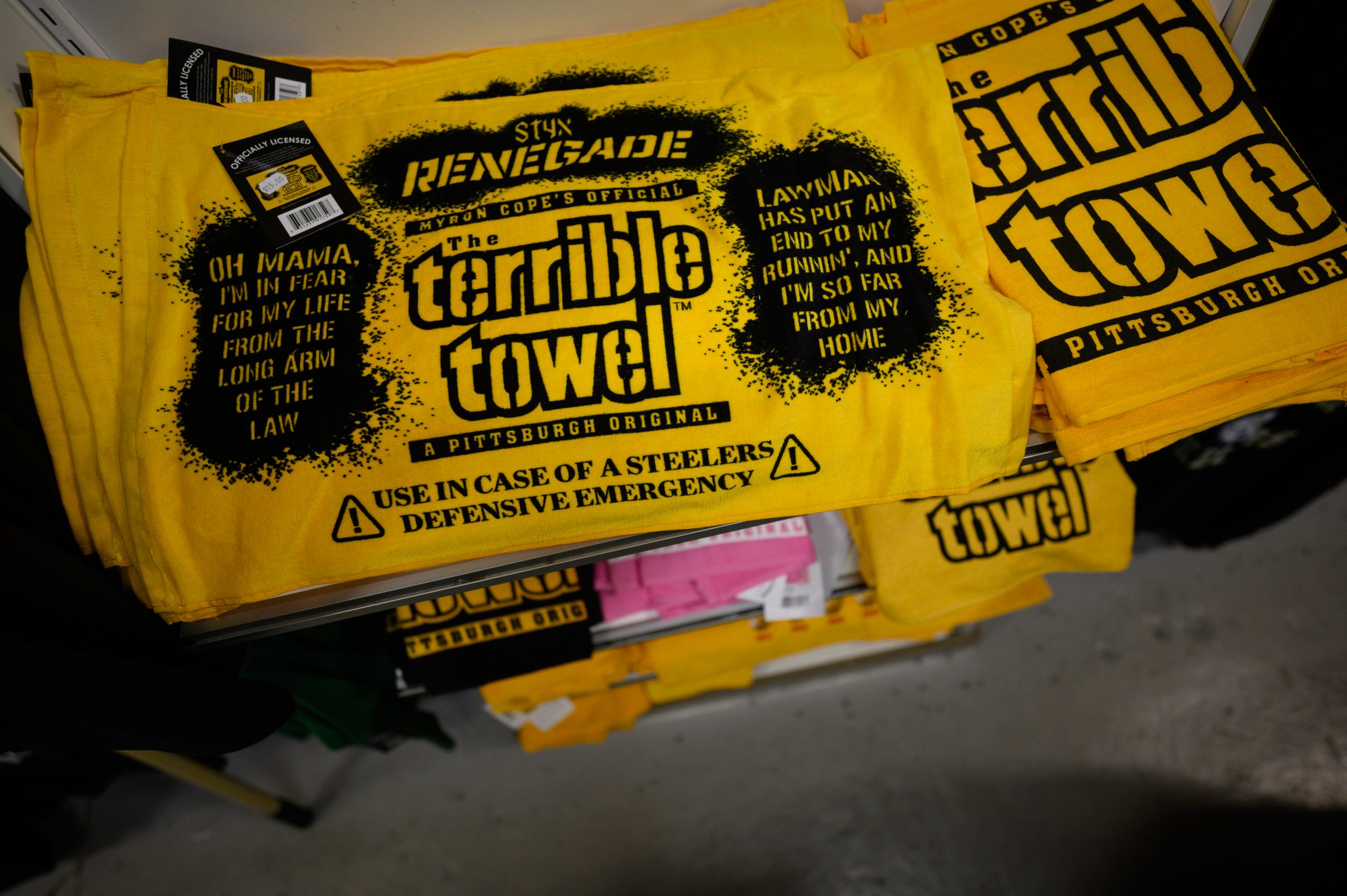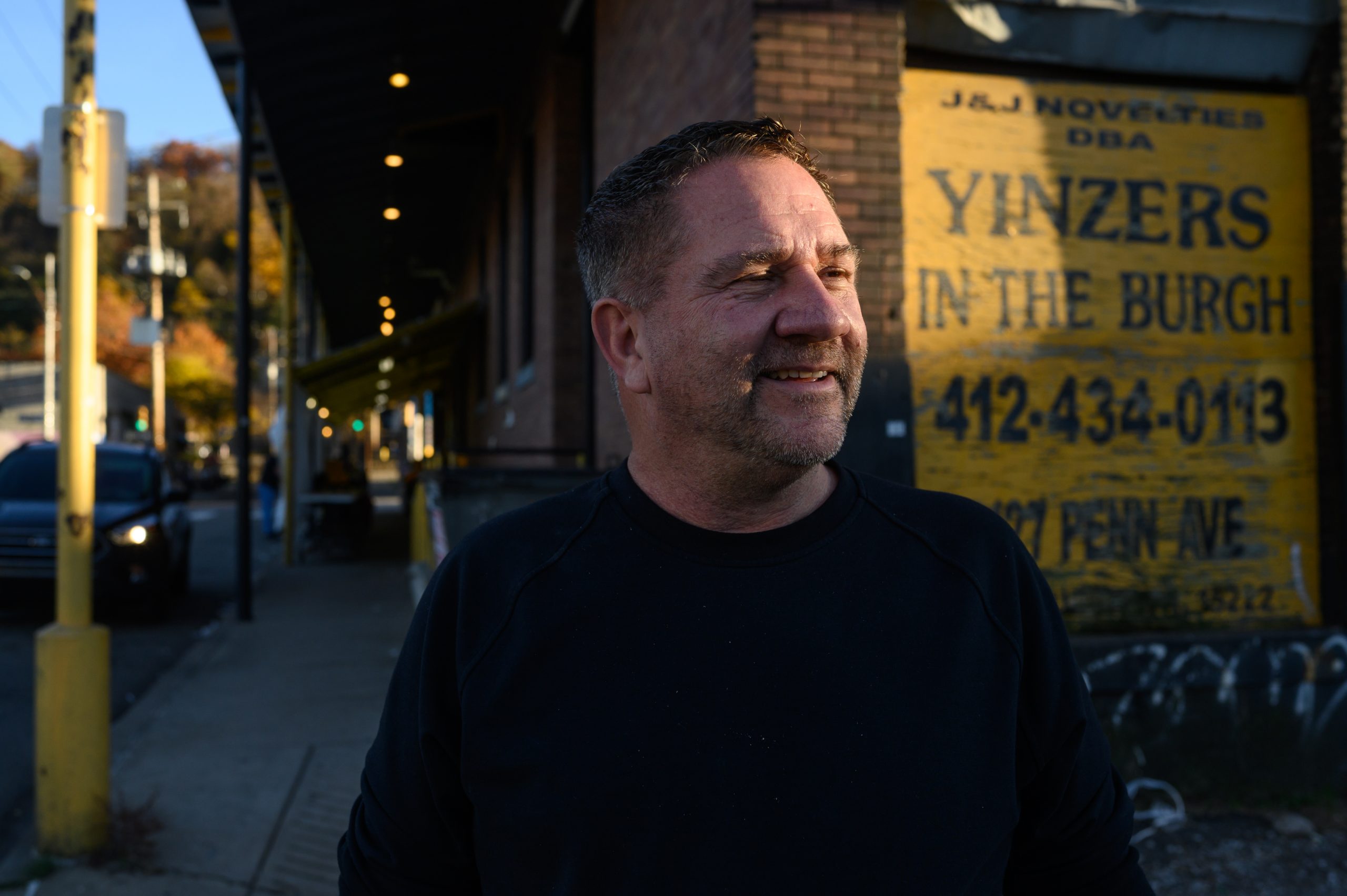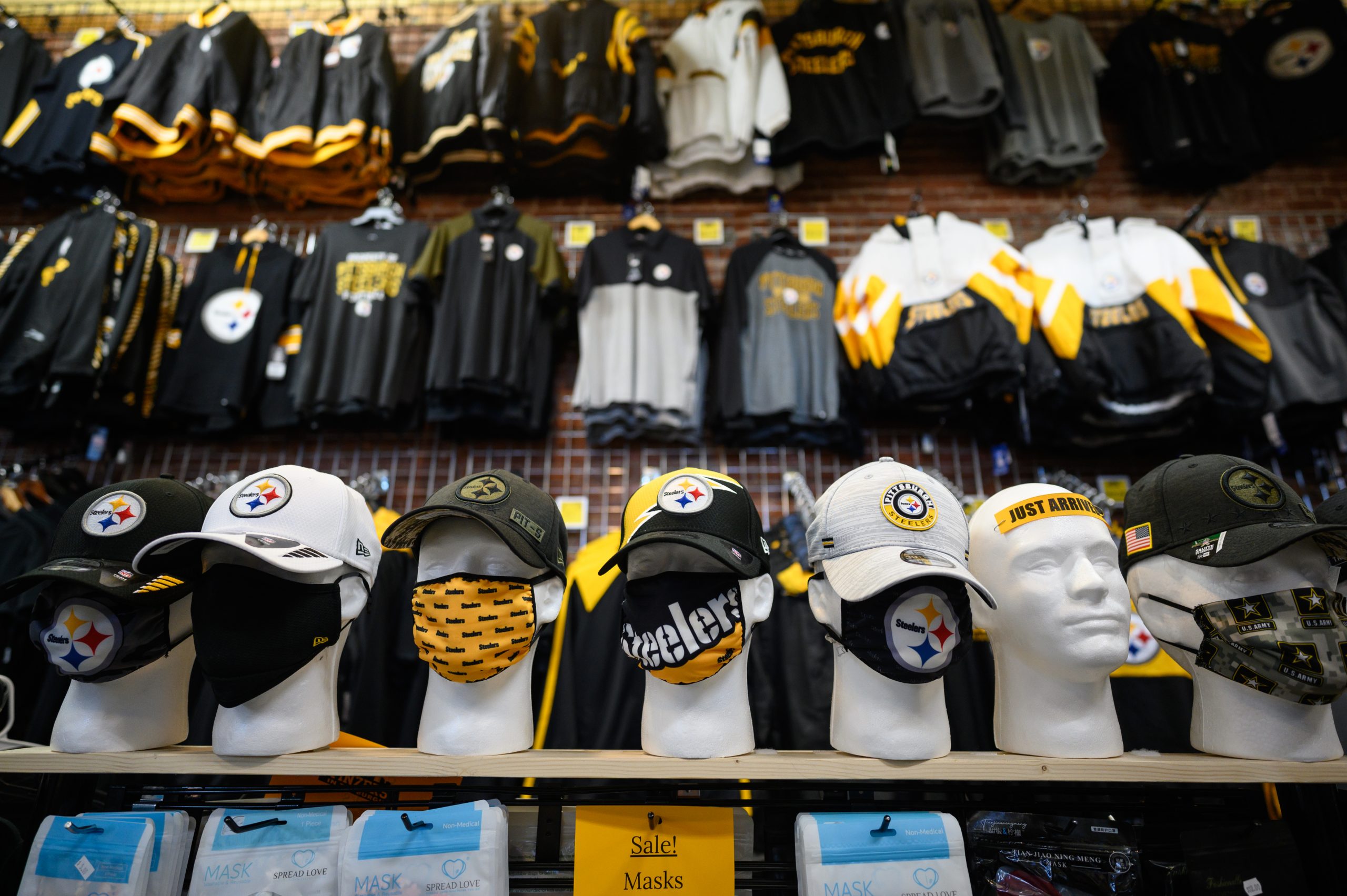PITTSBURGH — Jimmy Coen never stops moving.
The 60-year-old small-business owner walks up and down Penn Avenue in Pittsburgh’s Strip District business neighborhood, talking to fellow business owners, handling small problems, grabbing lunch outside at Cafe Raymond, or just striking up conversations with people along the street.
Most people call him by two names: Jimmy Yinzer. He gets the Yinzer moniker because that is what he named the black-and-gold filled stores he owns along this ancient city neighborhood. The word is an homage to the distinct dialect in this Appalachian city, thanks in large part to the Scots-Irish population who first settled the region.

Instead of “you all” or “you guys,” people around here say “yinz.”
Most people who live or visit here and are Steelers fans make his stores their first destination. When you think of the Steelers, you think Yinzers. There are Terrible Towels, key chains, pants, dresses, leggings, footballs, sweatshirts, hats, and car mats. There are outrageous camouflage black-and-gold pants and black Steelers hats with bright gold fake hair flowing out the back. His stores along Penn Avenue have everything needed to create the most kicked-out Steelers man cave or she shed in the country. There are three Yinzer stores within one block of each other on Penn Avenue (with one under repairs from a recent fire).
His customer base is like a miniature United Nations. A variety of different languages, muffled slightly by masks, fill the air within his stores and along the tables outside his stores.
When the pandemic hit, he adjusted. When a fire broke out in the middle of the night at his flagship store, he wept. So did the city. Then, he adjusted.
When the NFL decided to inject politics into their brand with advertising, social media posts, and tributes on their uniforms, he adjusted, but it hasn’t been easy.
“Back in 2016, when the NFL first became mired in politics, I took a hit in sales,” he said. “The same in 2017. This year was no different. I saw my sales drop in a year when sales were already far below our regular numbers. People don’t want the places they go to escape from stress and drama to amplify the stress and drama.”
In 2016, when Colin Kaepernick first decided not to stand for the national anthem, the NFL experienced an 8% dip in television ratings during the regular season when compared to 2015.
The slide continued in 2017, dropping television ratings another 9.7 percentage points as the football organization continued to look more like a social justice organization than the one place where a guy from Canton, Ohio, can have something in common with a guy who lives in Manhattan because they are rooting for the same team.
Those shared touchstones continued to evaporate this year as the NFL upped its social justice activism, resulting in another plunge in viewership.
The Pittsburgh Steelers is a unique brand in that it rose in accomplishments and talent while the city was falling to its knees as steel mill after steel mill closed in the 1970s. People around here had little to look forward to except this rough-and-tumble team that beat back odds and expectations and won four Super Bowls within five years.
The Terrible Towel, nothing but a common dish rag, became the city’s unofficial symbol, and Steeler Nation was born.
As families were forced to move across the country or abroad, they never let go of their Pittsburgh roots. Those expats became the reason thousands of verified Steelers bars exist around the world.
“The very idea that that sentiment has diminished, even a small amount, is sad,” he said.
Jimmy Yinzer is the quintessential American story. He is the guy who came from nothing and did poorly in school but never stopped pushing to live the American dream. He began his retail experience working at the former Kaufmann’s department store selling furniture, but he wanted more. So he started a second job, one he created selling merchandise on a table on Penn Avenue.
It was on that street as a vendor hawking trinkets that he learned the hum of the city and the intricacies of reading people and building relationships. It was 16 backbreaking years on the pavement, whether it was pouring rain, 100 degrees, or snowing. No matter what, he pulled up in his van before the sun came out and set up to serve the city and its tourists.
He got his first storefront 15 years ago and the second one seven years later. His beloved flagship store was a purchase of love, the former home of the Feinberg Variety. It was where the Terrible Towel was first sold 40 years ago. When the Feinberg family retired, he bought the building.

Last spring, a fire tore through the roof. He is still wading through the insurance bureaucracies to open it back up.
But outside of it, on an unseasonably sunny fall day last week, he had a table set up and was selling merchandise, just like the old days. And now, the city’s beloved team is a remarkable 8-0, its best start in the team’s long history.
“When you walk into my stores, you are part of a community, a family. Everyone, no matter where they come from or what color they are when you walk in here, there is this sense that we are all in this together,” he said. “My fans have not changed, but outside forces are dragging them down. We never do anything political here, and I think that is a good business model because your customers have a wide variety of different viewpoints. And we make sure all of those viewpoints are respected.”
Sports team owners decided, beginning in 2016 and continuing through this year, to bet on younger people’s consumer activism instead of older, loyal, and prosperous lifelong customers’ preference to just watch the game.
That decision doesn’t just hit their bottom line. It hits people like Jimmy Yinzer.
As one customer in the store said, “It used to be I scheduled my entire Sunday around football games. That does not happen anymore. If it’s on and I am home, I watch. But I am not decked out in my game jersey. Right now, I am not feeling it.” He was purchasing a brand new black-and-gold sweatshirt for his wife. This one had “Yinzer” blazed across the front.
It’s a purchase that proves businessmen like Jimmy Yinzer know their customers.

